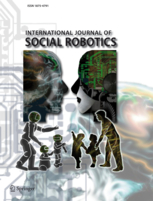Dear HIFA colleagues,
A few weeks ago I posted the Lancet article
below, which highlights the threat of a commercial sale of the new
top-level domain ".health".
The authors point out that ICANN
(Internet Corporation for Assigned Names and Numbers), which controls
all internet naming, could be about to make a decision to sell ".health"
to the highest commercial bidder. The decision is imminent. I have
indeed heard that an ICANN meeting that will include discussion of
".health" is being held over the *next few days*.
As the authors
of the Lancet article point out, sale of ".health" to a commercial
enterprise "could have a profound effect on health information access
and quality for generations to come". This is something that should
concern all of us, everywhere.
ICANN hosts a wiki which
apparently can only be edited by them and which briefly describes the
issue in rather difficult-to-follow language, without actually
explaining the nature of the objections that have been raised by leading
health organisations, including WHO, and by national governments:
http://icannwiki.com/index.php/.health
These
objections may be found elsewhere by googling. Essentially, there is a
*great* deal of concern among health agencies worldwide, and a small
handful of governments, of the public health consequences of
commercialising ".health". In particular, there will be little if any
assurance that the content of websites carrying the ".health" domain
name will contain reliable health information. There is a serious risk
that misinformation and/or commercially biased information could be
propagated using the ".health" suffix. It is likely that many citizens
worldwide will see the ".health" suffix as an indication that the
information is primarily intended for their health, whereas the reality
would be that much of the information would inevitably be wholly
unreliable, and driven by commercial (or even ideological) motives.
I
was especially concerned to read the latest news on this wiki, which
read as follows: "The IO [Independent Objector - see below] lost its
objection to Afilias' applicant for .health in a ICC determination by 3
panelists made on 6 November 2013. The determination was the first
Limited Public Interest Objection to be decided, as well as the first
objection filed by the IO to be decided. [19]
I am not entirely
clear how the proceedings work, but the wiki tells us that "[ICANN's
Independent Objector] is an appointed authority on international law
whose role is to object to strings on the grounds of Community harm and
Limited Public Interest were detailed in the applicant guidebook. His
objections are official objections and are funded by ICANN, though his
office is otherwise independent. Reasons for the specific case against
.health were not initially given, but, in the case of Limited Public
Interest, "the applied-for gTLD string must be contrary to generally
accepted legal norms of morality and public order that are recognized
under fundamental principles of international law. The expert panel
appointed by the ICC will base its decision on the existence of such a
contradiction." The applied for string must threaten an incitement to
violence of lawless action, discrimination, child pornography, or "be
contrary to specific principles of international law as reflected in
relevant international instruments of law.""
This reference to
"violence of lawless action, discrimination, child pornography..." is
bizarre and I cannot claim to understand how this is relevant. What is
at issue here is the availability of reliable versus unreliable
healthcare information. I hope that others on HIFA may be able to
enlighten us further.
Regrettably, there has been an almost total
absence of advocacy and awareness-raising about the issue, apart from
The Lancet article. Other than the authors of the Lancet article, there
is no advocacy leadership of which I am aware. This is the kind of issue
that needs a prominent global health leader to speak out. I do not know
whether Margaret Chan, Director-General of WHO, is free to speak out on
this, but I feel that we need a strong statement from someone at the
highest level.
In the meantime, what can we (HIFA members) do to
stop ICANN making - or at least deferring - a decision that could
profoundly damage global health?
Best wishes,
Neil
HIFA profile: Neil Pakenham-Walsh is the coordinator of the HIFA2015
campaign and co-director of the Global Healthcare Information Network. ...
[ As mentioned above Neil also posted the Lancet article - I have just copied the link below ]
Below is the citation and extracts of a new article in The Lancet. The full text is freely available here:
http://www.thelancet.com/journals/lancet/article/PIIS0140-6736(13)62215-1/fulltext
Ensuring the future of health information online
Tim K Mackey, Bryan A Liang, Amir Attaran, Jillian C Kohler
The Lancet, Volume 382, Issue 9902, Page 1404, 26 October 2013
doi:10.1016/S0140-6736(13)62215-1Cite or Link Using DOI
 The exhibition brings together artworks including painting, photography, sculpture, film and performance, made during residencies at medical research centres funded by the Wellcome Trust in Kenya, Malawi, South Africa, Thailand, Vietnam and the UK.
The exhibition brings together artworks including painting, photography, sculpture, film and performance, made during residencies at medical research centres funded by the Wellcome Trust in Kenya, Malawi, South Africa, Thailand, Vietnam and the UK.



 orcid.org/0000-0002-0192-8965
orcid.org/0000-0002-0192-8965